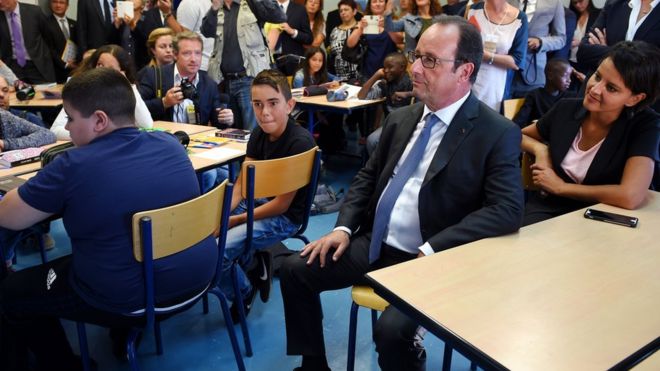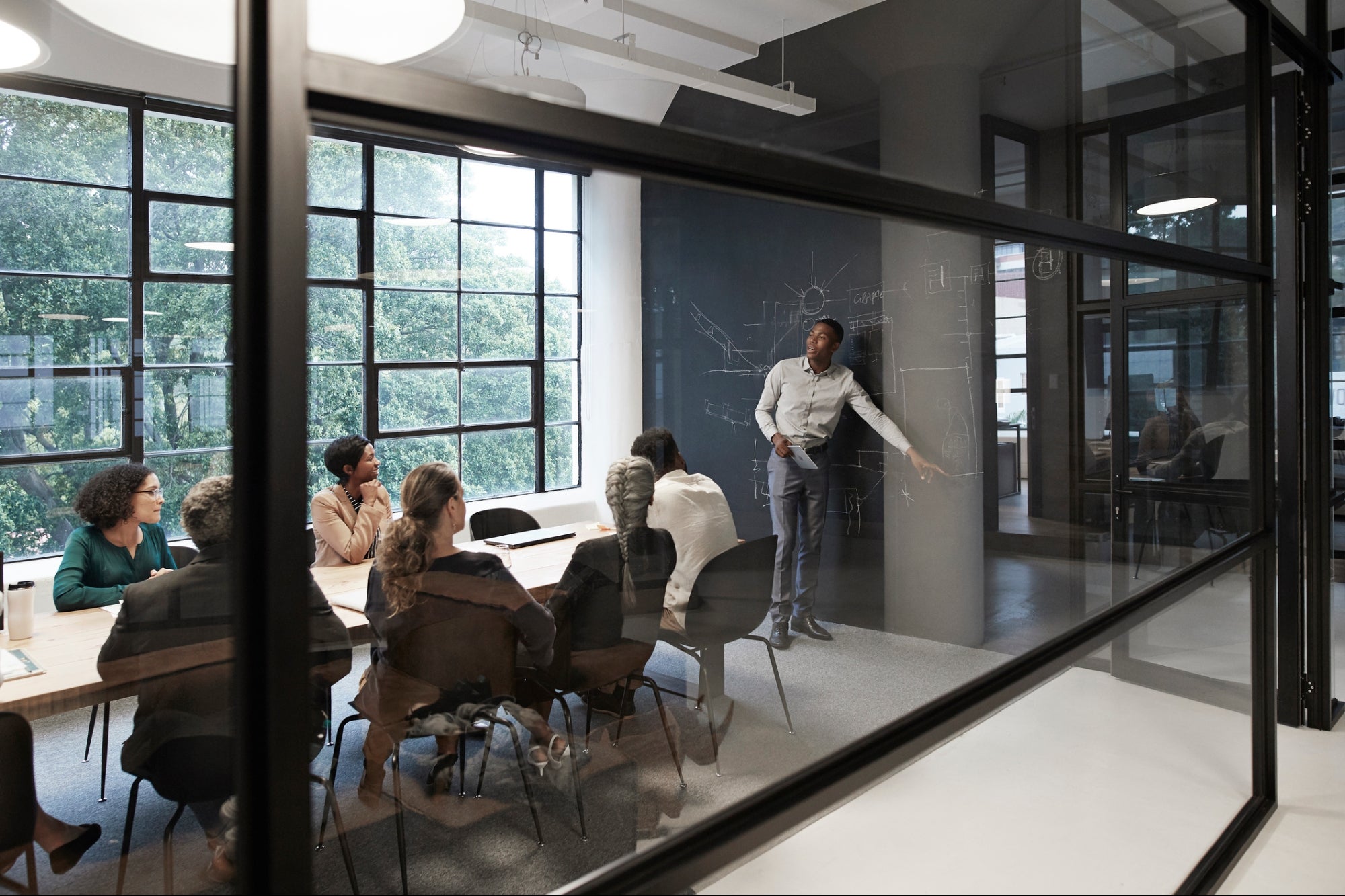
Twelve million French children have gone back to school with new security measures in place because of recent jihadist attacks.
Pupils will be taught to hide, escape and help each other and there will be three security drills a year including simulated attacks.
Security is also being beefed up at the entrance to school buildings.
The new measures coincide with major education reforms which have come in despite widespread protests.
France has been under a state of emergency since the coordinated militant Islamist attacks on Paris in November 2015 which claimed the lives of 130 people.
Further jihadist attacks saw 86 people murdered on the seafront at Nice and a priest killed in a church in Rouen.
President Francois Hollande wrote on Facebook that it was an important day for teachers and pupils, and that the circumstances “justify the security measures that have been taken”.
The tightened measures require local education officials to have crisis cells and emergency phone lists, schools to have regular patrols and secure entrances, and for pupils to be prepared for an attack.
Game of silence
Schools introduced greater security after the 13 November attacks, but, with the introduction of three compulsory drills every year, the biggest question has been how to prepare very small children for a crisis without traumatising them.
Among the suggestions for teachers are a series of games to help children learn to hide quietly, including:
- Playing a game known as “le roi du silence”
- Hiding in boxes without being scared of the dark
- Playing statues and changing position at the teacher’s signal
- Running quickly back into school from the playground
Teenagers at French schools will be given greater tasks which include learning how to save lives.
One head teacher told French TV that his school had already stopped parents from gathering inside the building along with other measures, but it was impossible to have a police officer posted at every school.
Alongside the security measures, France is seeing big changes to its curriculum. Some of the biggest reforms are for 11-15 year-olds in colleges:
- Greater independence for teachers
- More interdisciplinary lessons that combine subjects such as health, green issues and ancient culture
- Learning a second modern language will start at age 11-12
- Latin and Greek will not be dropped, as planned, but will be replaced by an introduction to ancient languages. [Source:- BBC]








